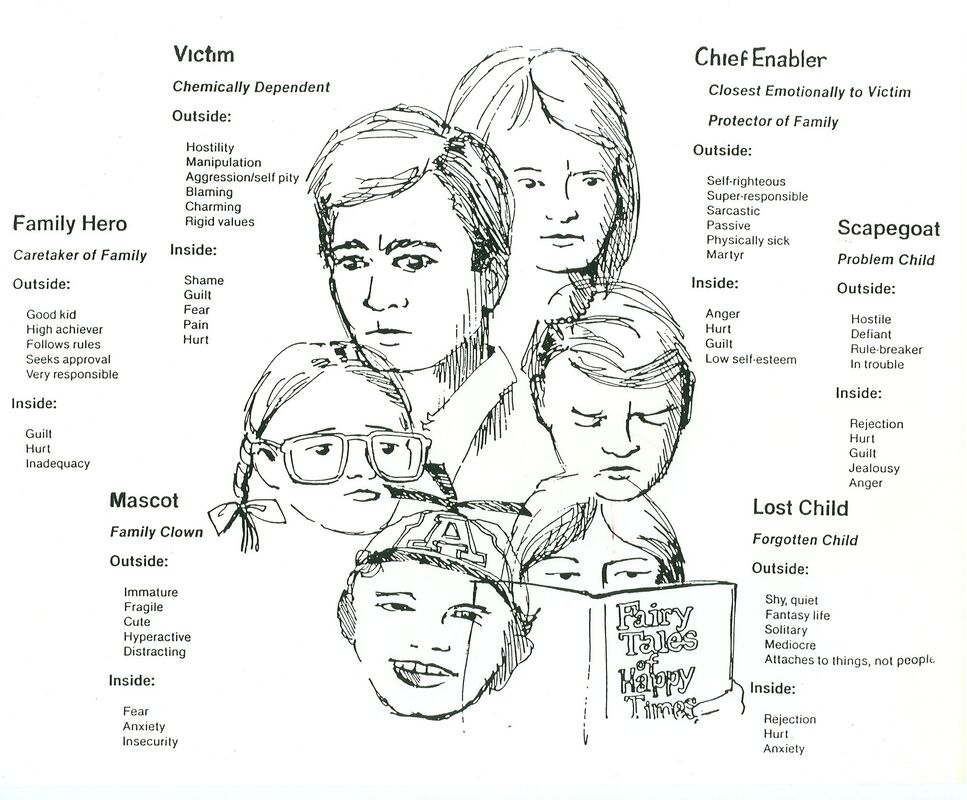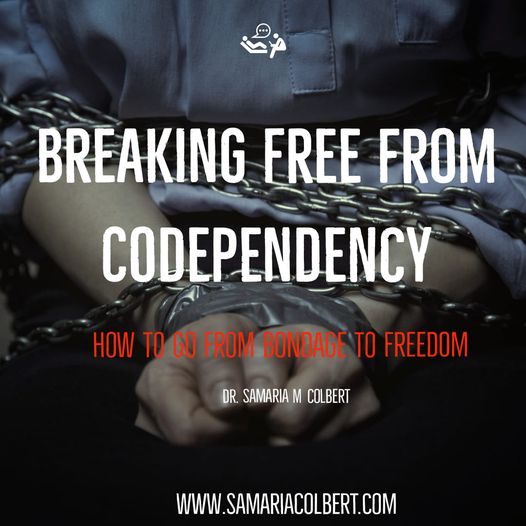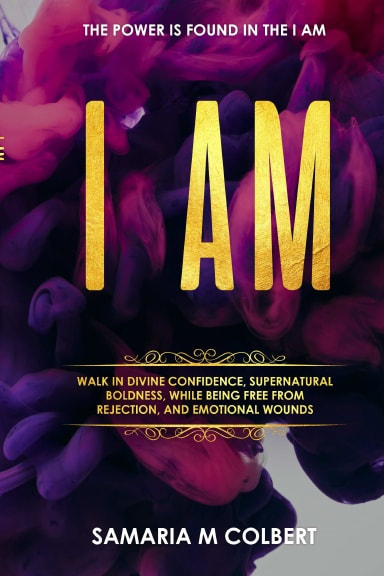 Breaking Free From Codependency © 2021 Dr. Samaria M Colbert Codependency is a dysfunctional relationship dynamic that is rooted in the spirit of power, control, and manipulation. In Christian circles we call codependency an unhealthy soul tie. Codependency is a form of enmeshment where individuals expected to think, feel, act and grow in the same way to their own detriment. In the codependent relationship an individuals’ thoughts, ideas, actions, behaviors, and opinions are subject to the domination of another person. The other person is controlling, manipulative and isolative. When one is in a codependent relationship, they relinquish their right to individual autonomy to the control of an abuser. Remember abuse doesn’t have to be physical, it can also be emotional or psychological as well. Codependency can be found in interpersonal relationships, romantic relationships, parental relationships including family. Codependency is never healthy and based upon manipulation. Healthy relationships are interdependent, while codependent relationships are not. In interdependent relationships your individuality is honored and respected, while seeing the value in relationship to others. When you’re in an interdependent relationship you still grow as an individual, while recognizing the unique goals, needs, and opinions of another. You don’t need to lose yourself to be in a relationship. Let’s look at what the Bible says about interdependent relationships. Proverbs 27:17 New Living Translation 17 As iron sharpens iron, so a friend sharpens a friend. In interdependent relationships you are challenged to be the better version of you, they don’t try to control you. 1 Corinthians 12:12-27 New Living Translation One Body with Many Parts 12 The human body has many parts, but the many parts make up one whole body. So it is with the body of Christ. 13 Some of us are Jews, some are Gentiles,[a] some are slaves, and some are free. But we have all been baptized into one body by one Spirit, and we all share the same Spirit.[b] 14 Yes, the body has many different parts, not just one part. 15 If the foot says, “I am not a part of the body because I am not a hand,” that does not make it any less a part of the body. 16 And if the ear says, “I am not part of the body because I am not an eye,” would that make it any less a part of the body? 17 If the whole body were an eye, how would you hear? Or if your whole body were an ear, how would you smell anything? 18 But our bodies have many parts, and God has put each part just where he wants it. 19 How strange a body would be if it had only one part! 20 Yes, there are many parts, but only one body. 21 The eye can never say to the hand, “I don’t need you.” The head can’t say to the feet, “I don’t need you.” 22 In fact, some parts of the body that seem weakest and least important are actually the most necessary. 23 And the parts we regard as less honorable are those we clothe with the greatest care. So we carefully protect those parts that should not be seen, 24 while the more honorable parts do not require this special care. So God has put the body together such that extra honor and care are given to those parts that have less dignity. 25 This makes for harmony among the members, so that all the members care for each other. 26 If one part suffers, all the parts suffer with it, and if one part is honored, all the parts are glad. 27 All of you together are Christ’s body, and each of you is a part of it. The scripture in first Corinthians indicates healthy interdependent relationships. We recognize our differences, while recognizing we are a part of one body, one spirit. We are still unique and the same. We recognize our different positions within the body of Christ, but one person is not less than or more than the other. Different is not deficient, it’s just different. Codependent relationships are different in that they consider your individuality bad or a sin. In interdependent relationships we are placed within the body where God has assigned us, not by a controlling manipulative family member. Interdependent relationships are based upon mutual honor and respect. Signs you are in a codependent relationship Your unique individuality is frowned upon, you feel stuck and stagnant. You are put in a specific role within the family, that a controlling person benefits from. You don’t really benefit from the role you were placed in. I is considered a dirty word within your relationship. Control, manipulation is a reoccurring theme within your relationship. Unhealthy behaviors are the norm, healthy behaviors are frowned upon. For example, if you grew up in the home where everyone drinks alcohol, then you decide to get sober, you may be mistreated because of your newfound sobriety. Generational curses and intergenerational traumas are found within your family dynamic. Repeated unhealthy cycles. You feel as if you don’t have a sense of self, and that you can’t get free. You feel as if your souls are intertwined. You suffer with spiritual stockholm syndrome. That means you recognize you are being held captive, and bound in your mind by your abuser, but you have feelings of trust and affection towards your capture. You can pinpoint who the controller or controllers are within your family. You have a long-standing pattern of passivity. My pastor calls this passive righteousness. It means you are enabling behaviors, but because you are not actually doing the abuse, you feel as though you are acting in righteousness. This is not true. If you are in a getaway car while a store is being robbed, you still go to jail with the other assailants because you were in the car. Enabling someone else’s behavior means you secretly are agreeing to it and will suffer the same consequences as if you were the one committing the crime. You lack a sense of self. If you really think about it, you may feel like you don’t know who you are anymore since getting into that relationship Parentification of adults. This is when grown adults are parenting grown adults. Meaning you are clothing, feeding, and taking care of well abled adults. Or it can be the other way around, you are the adult child, who is feeding, clothing, and taking care of well abled parents. This is not referring to when you are taking care of aging or ailing family members. You can identify your role within the unhealthy family roles. You know in your heart your relationship with your family feels like a burden, it is damaging to you to be in their presence, and it feels like bondage. How to get free 1. Recognize that there is a problem. Often families can stay stuck in the place of denial for generations. Remember you will never get free from what you don’t acknowledge. There is a problem, hiding it from yourself won’t bring you to healing. 2. Depending on your identified role, you must determine what is in your responsibility and what is not. For example, if you have had the role of taking care of adults that is not your responsibility, what is your responsibility is taking care of yourself and your children. 3. Remember it’s going to be a process not an overnight journey. You’re in the process of rewiring your brain, to think, act and behave differently. There are steps to change. Precontemplation- You think about it every now and again but make no intention of changing. Often times we stay stuck in familiarity because what is familiar is our norm and change provokes fear of the unknown. Contemplation- You become more aware of the problem and how it is negatively affecting you. You think about it, but you haven’t made the full commitment to change. Preparation- You have determined that it’s a problem, you are sick and tired of being sick and tired. You have now determined to make a change. Action: You now are making actions steps to make the change. Your change includes setting clear and specific healthy boundaries. Remember all healthy boundaries have healthy relationships. All unhealthy relationships, unhealthy boundaries or lack of boundaries are somewhere in the midst. Maintenance-sustained changed, and behavior. Relapse-you may go back repeatedly into old behaviors, patterns before you finally make lasting changes. As a warning at this point you may be blacklisted, shunned, even become the black sheep of the family for making a change. Reference my blog The Black Sheep. However, at this point you have had glimpses of peace and have decided that your peace is worth the cost. Finally, what are your action steps. Remember actions steps don’t have to be giant leaps or steps, rather baby steps. Start with a commitment to renew your mind. You may not have the strength to leave right away but you can start by putting new information in your mind, once your mind starts changing your body will follow. Romans 12:2 but be transformed by the renewing of your mind. Commit to flooding your mind with information, as you do this you are giving your heart muscle supernatural strength. Commit to meditating on scriptures, about God’s deliverance. Read more books that specifically speak to your situation, this will also help you to learn you and why you do what you do. I recommend the book: Boundaries Dr. Henry Cloud and Dr. John Townsend. Codependent No More. YouTube messages from other Youtubers about codependency. Determine the life you want to live, set boundaries, set smart goals and work towards them. Eventually you will get stronger to be able to remove yourself from the situation. Ephesians 6:12 King James Version 12 For we wrestle not against flesh and blood, but against principalities, against powers, against the rulers of the darkness of this world, against spiritual wickedness in high places. Remember it’s a spiritual a battle, but God has giving you what you need to fight. He also fights for you. Exodus 14:14 New King James Version 14 The Lord will fight for you, and you shall hold[a] your peace.” Determine to not give up. Your worth the fight. Your peace is worth it. Remember God came to set you free from everything that holds you bound. Receive his freedom in Jesus’ name. © 2021 Dr. Samaria M Colbert
0 Comments
Your comment will be posted after it is approved.
Leave a Reply. |


 RSS Feed
RSS Feed